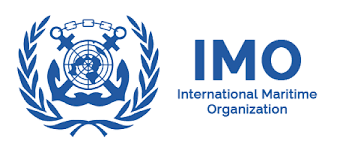The International Maritime Organization announced on July 7 tightened decarbonization targets for shipping, as well as confirming the development of new fuel standards and a pricing mechanism for greenhouse gas emissions, but industry stakeholders said the compromise deal might fail to accelerate emissions reductions sufficiently.
Following a week of discussions at the Marine Environment Protection Committee, IMO member states adopted a revised GHG reduction strategy that includes an eventual goal of reaching net-zero emissions from international shipping “close to” 2050 on a life-cycle basis.
For the interim period, the UN agency has aimed to cut emissions by 20%-30% by 2030 and 70%-80% by 2040, against 2008 levels.
Johannah Christensen, CEO of industry group Global Maritime Forum, said the targets send “an important signal to governments and industry” but added that member states failed to “provide the necessary clarity and strong commitments” in its strategy.
New measures
To reach the revised targets, the IMO confirmed new standards on the GHG intensity of marine fuels will be developed with a phased reduction, and that a pricing mechanism will be enforced on maritime emissions.
China and Argentina were lobbying hard against a carbon levy on the grounds that it could hurt the economic interests of developing countries disproportionately, but its supporters — including some Pacific island nations — managed to imply that the pricing mechanism would be a levy in the strategy’s appendix.
Both measures are due to be finalized by 2025 and come into force by 2027. Member states separately set a target to have 5%-10% of global bunker consumption from energy sources with zero or near-zero emissions by 2030.
The IMO has approved an interim guidance on biofuel use and will study on how carbon capture technology will apply to its targets. On the other hand, the usage of carbon credits is discouraged.
“The targets… should accelerate the introduction of truly sustainable alternative fuels. However, more must be done,” said Marie Cabbia Hubatova, director for global shipping at the Environmental Defense Fund, an NGO. “Over the next two years, the IMO must develop robust mechanisms.”
In its reference case, S&P Global Commodity Insights expects alternative low-carbon supplies to account for just 2.2% of the world’s bunker consumption in 2030.
Paris agreement
Based on advisory UMAS’ recommendation, the shipping industry should aim to reduce CO2 emissions by 45% from 2010 levels by 2030 and reach zero emissions by 2040 to align with the Paris Agreement’s ambition in limiting global warming to 1.5 C above pre-industrial levels.
Bryan Comer, marine program lead of the International Council on Clean Transportation, estimated that the IMO’s new targets would put the industry on a trajectory to help cap the temperature rise at “well below” 2 C but exceed the 1.5 C target.
“Ultimately, it’s the measures the organization takes to implement the strategy, such as GHG intensity standards for ships and fuels, as well as economic measures, that will determine how much international shipping contributes to future warming,” Comer said.
In 2018, the IMO established goals to reduce the carbon intensity of international shipping by 40% by 2030 and to halve emissions by 2050, compared with 2008. But environmentalists and shipping industry participants said those failed to kickstart maritime decarbonization at scale.
Around 32 countries led by some Pacific Island states, the US, the UK, and Canada pushed for eliminating shipping emissions by 2040, but they faced strong opposition from China, Argentina, Brazil, and some other countries, according to delegates. The two sides eventually compromised.
“This outcome is far from perfect, but countries across the world came together and got it done… We in the Pacific are going to keep up a strong fight for a levy that gets us to zero emissions by 2050,” said Ralph Regenvanu, minister of climate change adaptation of Vanuatu, suggesting a levy of $100/mtCO2e would be required to accelerate maritime decarbonization.
IMO Secretary-General Kitack Lim, whose term will expire later this year, said the new strategy “is not the end goal… [but] in many ways a starting point for the work that needs to intensify even more over the years and decades ahead.”
“We have a clear direction, a common vision, and ambitious targets to guide us,” Lim said. “It is particularly meaningful, to have unanimous support from all member states.”
Source: Hellenic Shipping News





